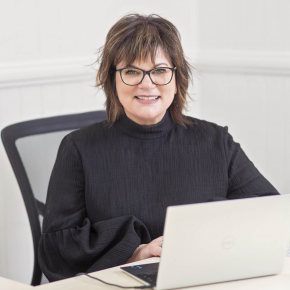Liz Wilkes – The Guardian
Midwife and Managing Director of My Midwives
Midwives rally over ‘unsafe’ conditions and workloads in Queensland’s maternity wards.
Union calls for increased funding, warning that lack of staff is jeopardising wellbeing of mothers and babies.
Midwives will march on Queensland parliament on Monday as the powerful nurses union calls for urgent funding to address what they say is an “unsafe” maternity crisis across the state.
Kate Veach, the secretary of the Queensland Nurses and Midwives’ Union (QNMU), says there are too few staff to guarantee safe conditions for pregnant mothers and newborn babies in the state.
She says a recent safety audit by the union revealed some midwives were being allocated up to 20 mothers and babies at a time.
“Midwives are rallying today because conditions and workloads in Queensland maternity inpatient wards are unsafe and cannot continue,” she said.
“The system is in crisis and we have the solutions. Queensland’s midwives must be heard and respected.”
Members of the QNMU will join those from the peak body the Australian College of Midwives and midwifery practise My Midwives at the gates of parliament on Monday for the “unprecedented” rally.
Among other demands, they are calling for some of the $42m in state budget funding set aside for birthing services to be spent on midwives.
Experts have been raising the alarm about the state’s maternity system for years, with the situation particularly severe in regional Queensland. Some hospitals, such as those in Chinchilla and Gladstone, have so few staff that maternity wards have been put on “bypass”, with patients sent elsewhere.
The Queensland government has twice held public meetings on the crisis and it promised to spend $42m on rural and regional maternity services in its June budget.
Some of the money has been allocated to train 20 GPs in obstetrics and gynaecology.
But the union says no money has been allocated to midwives.
The QNMU wants the introduction of ratios in maternity inpatient wards, public funding for homebirths and a statewide workforce plan. It also wants “immediate and appropriate” funding to support the expansion of access to midwifery group practice – a model of care based on a close relationship between the patient and one midwife.
Alison Weatherstone, chief midwife at the College of Midwives, said Queenslanders weren’t able to consistently access maternity care close to home.
“Failure to act is a failure to ensure the safety and wellbeing of Queensland mothers, babies and the midwives who care for them.”
Liz Wilkes, managing director of My Midwives, said the state government needed to act immediately.
“Every woman who gives birth in Queensland receives care from a midwife. Having that midwife be a known midwife should be a priority,” she said.
“The state government must commit to midwifery funding as a matter of urgency.”
Ashleigh Sullivan, a QNMU member, said fellow midwives were increasingly exhausted and burnt-out as a result of “dangerous workloads”.
“The state government announced $42m in state budget maternity funding, yet no funds have yet been allocated to support midwives or midwife-led models of care,” she said.
The QNMU, the Australian College of Midwives and My Midwives are set to hold a meeting with the Queensland health minister, Shannon Fentiman, on Wednesday.
Fentiman said she had travelled across Queensland to speak with frontline staff about maternity services.
“Their feedback is being incorporated into the rollout of our $42m investment to boost services and support, particularly in rural and remote areas,” she said in a statement.
Fentiman said a number of initiatives were identified by midwives during consultation, including multidisciplinary training.
“A pilot program testing midwife to patient ratios was recently completed on the Gold Coast, and following its success I’m committed to seeing that further introduced across the state,” she said.
“I look forward to announcing further initiatives very soon.”
